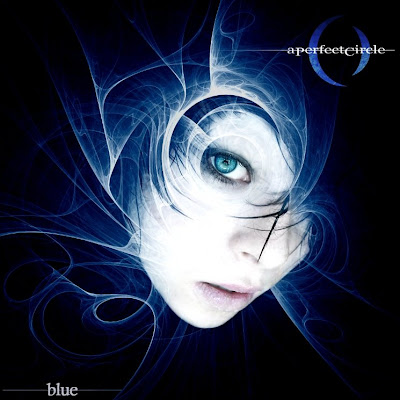
HUBERT-FELIX THIEFAINE
LE CHANT DU FOU
French singer/songwriter Hubert-Félix Thiéfaine is an artist whose work one may find very difficult to file in any genre. Influenced by Bob Dylan and Lou Reed as well as Léo Ferré, Jacques Brel, and French writers, his music first took shape as a form of folk-rock, turning darker and more synthetic in the '80s and constantly evolving with time into a quite personal style of pop featuring poetic, daring, and sometimes difficult lyrics. Never submitting to musical fashion or ideology, Thiéfaine's work might be considered just as original as that of Jacques Higelin or Gérard Manset, expressing a conflicted and sometimes odd personality. Although Thiéfaine has opted out of the mass-media music business since the beginning of his career in 1978, he has managed to attract a large and faithful audience, selling more records and concert tickets than one might imagine given the level of his exposure, and gaining cult status along the way.
Hubert-Félix Thiéfaine was born in Dole, Jura, in 1948. Having had a quite unhappy childhood, he quickly encountered issues at school. Developing a great deal of imagination at that time and already with a rebellious streak, he started writing songs with a couple of friends at the early age of 12. He later managed to make it through university, where a friendly collaboration with the folk-influenced Tony Carbonare began.
In 1976, he was signed to record his first LP, Tout Corps Vivant Branché Sur le Secteur Étant Appelé à S'Émouvoir...; released in 1978 and selling few copies, the album nevertheless included his first semi-hit, "La Fille du Coupeur de Joint" (which was to become a cult classic). The Thiéfaine-Carbonare collaboration continued with the release of two further studio records, 1979's Autorisation de Délirer and 1980's De l'Amour, de l'Art et du Cochon. His 1981 record, Dernieres Balises: Avant Mutation, made with the help of longtime friend Claude Mairet, exposed Thiéfaine's darker side, while his live sets were increasingly warmly welcomed by his growing audience.
The Thiéfaine-Mairet collaboration continued with 1982's Soleil Cherche Futur, an album that gained Thiéfaine his second gold record after Dernieres Balises: Avant Mutation, along with some radio airplay. From 1984 to 1995, Thiéfaine alternated studio recordings (Alambic/Sortie-Sud, Météo Für Nada, Eros Über Alles, Chroniques Bluesymentales, Fragments d'Hébétude) with tours and numerous live albums (1986, 1988, 1995), then sticking to his newfound style, more devoted to synth pop and rock.
In 1996 and 1998, he released two new sets of material like two parts of a diptych, La Tentation du Bonheur and Le Bonheur de la Tentation. After 2001's Defloration 13, 2005's Scandale Mélancolique saw Thiéfaine collaborate with famous young artists like Cali and J.P. Nataf, stepping out somewhat uncharacteristically with his most visible comeback to date. (allmusic guide)
22 mai





































